Last Chance to Catch NYC's Holiday Notalgia Train
We met the voices of the NYC subway on our nostalgia ride this weekend!

You can still find remnants of the original McKim Mead & White-designed Penn Station from 1910 inside today's modern transit hub!

For more than a decade, Untapped New York has guided intrepid New Yorkers and tourists on expeditions to hunt for architectural remnants of the original Pennsylvania Station still visible inside and around the current transit hub. Few people contest the tragedy of the demolition of the first New York Penn Station, which began on October 28, 1963. The McKim, Mead, and White masterpiece, only 53 years old, became a martyr for the landmark preservation cause when the air rights to Penn Station were sold to accommodate Madison Square Garden.

Discover hidden remnants of old Penn Station and explore a new train hall inside a historic Post Office building!
The subterranean train station was required to remain operational during the sports venue's construction and throughout modern-day renovations to the Long Island Railroad concourse. This unique requirement has allowed a surprising amount of remnants to survive from the original 1910 station! Discover some of those remnants below and join us for an upcoming Secrets of Penn Station and Moynihan Train Hall walking tour—an updated version of the walking tour we launched over ten years ago—to see even more remnants in person.
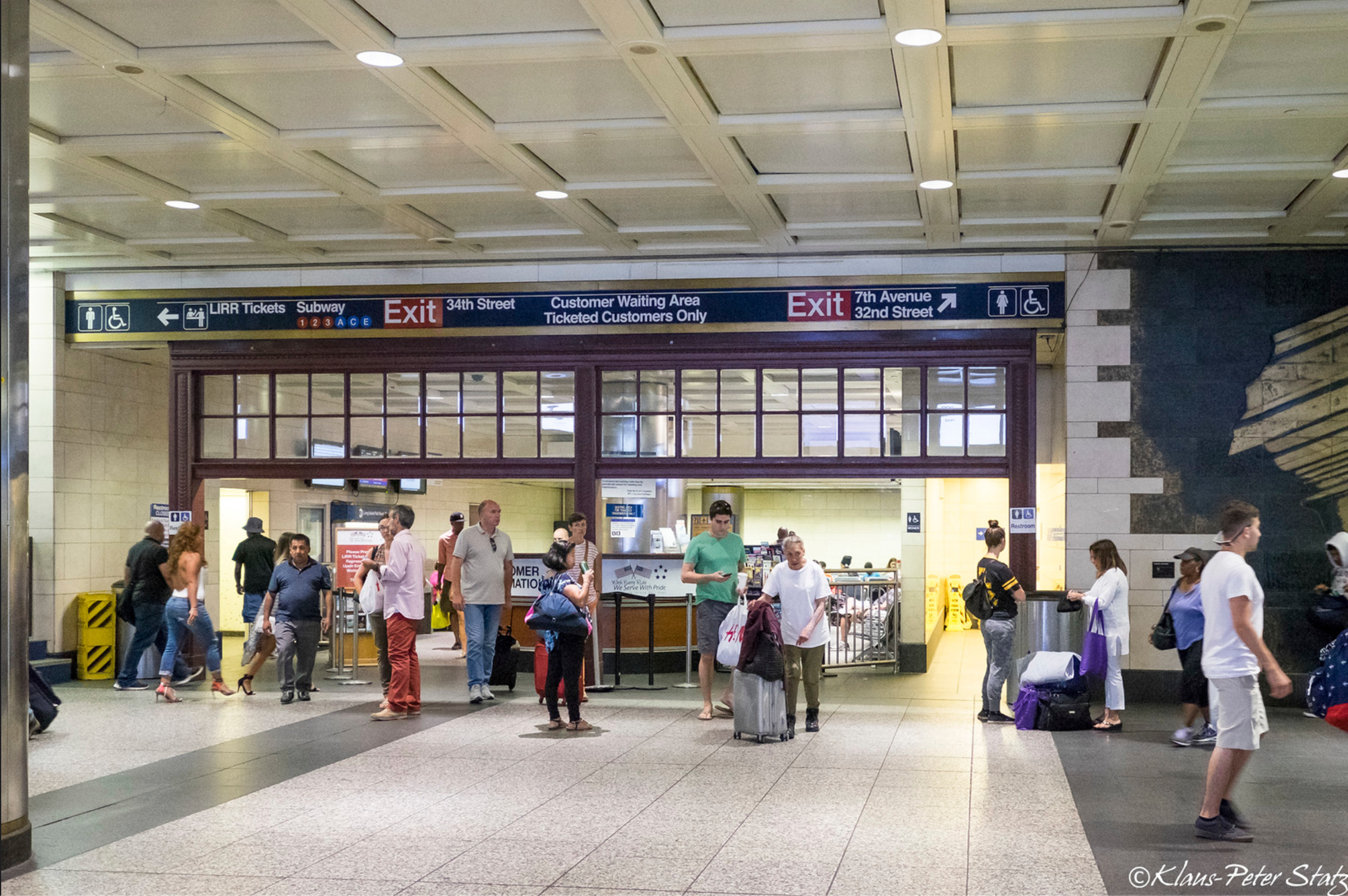
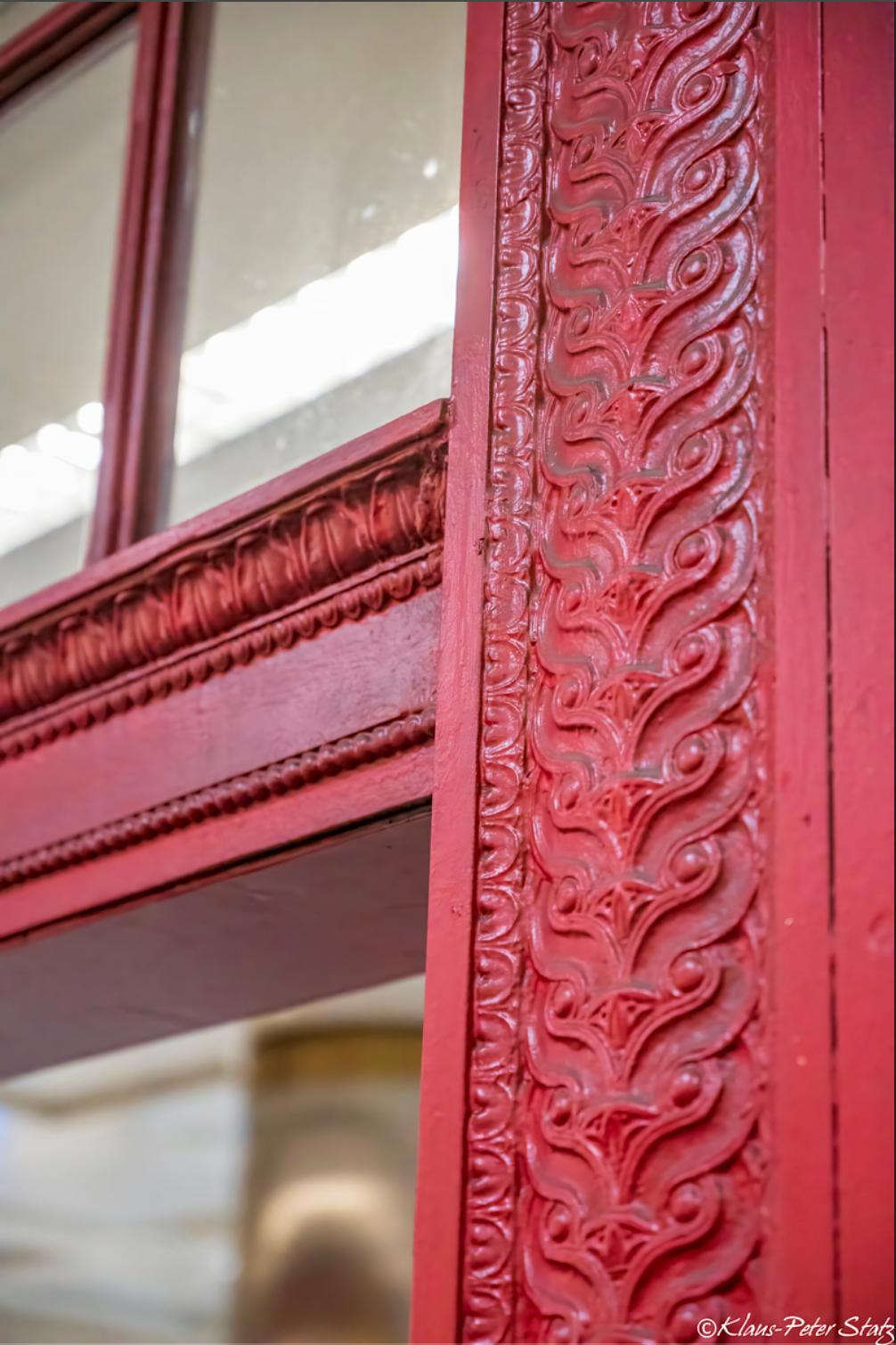
This cast-iron partition at the entrance to the Long Island Railroad waiting room, near the restrooms and the elevator to New Jersey Transit, is one of the easiest remnants to find. The eye-catching strucuture with a repetitive leaf pattern and beveled glass panels has been painted a bright red color. Still, despite it's vibrant hue, most commuters likely pass through this gateway without knowing its signifigance. The entryway was saved because it was walled off during the demolition of Penn Station and left untouched for 30 years.
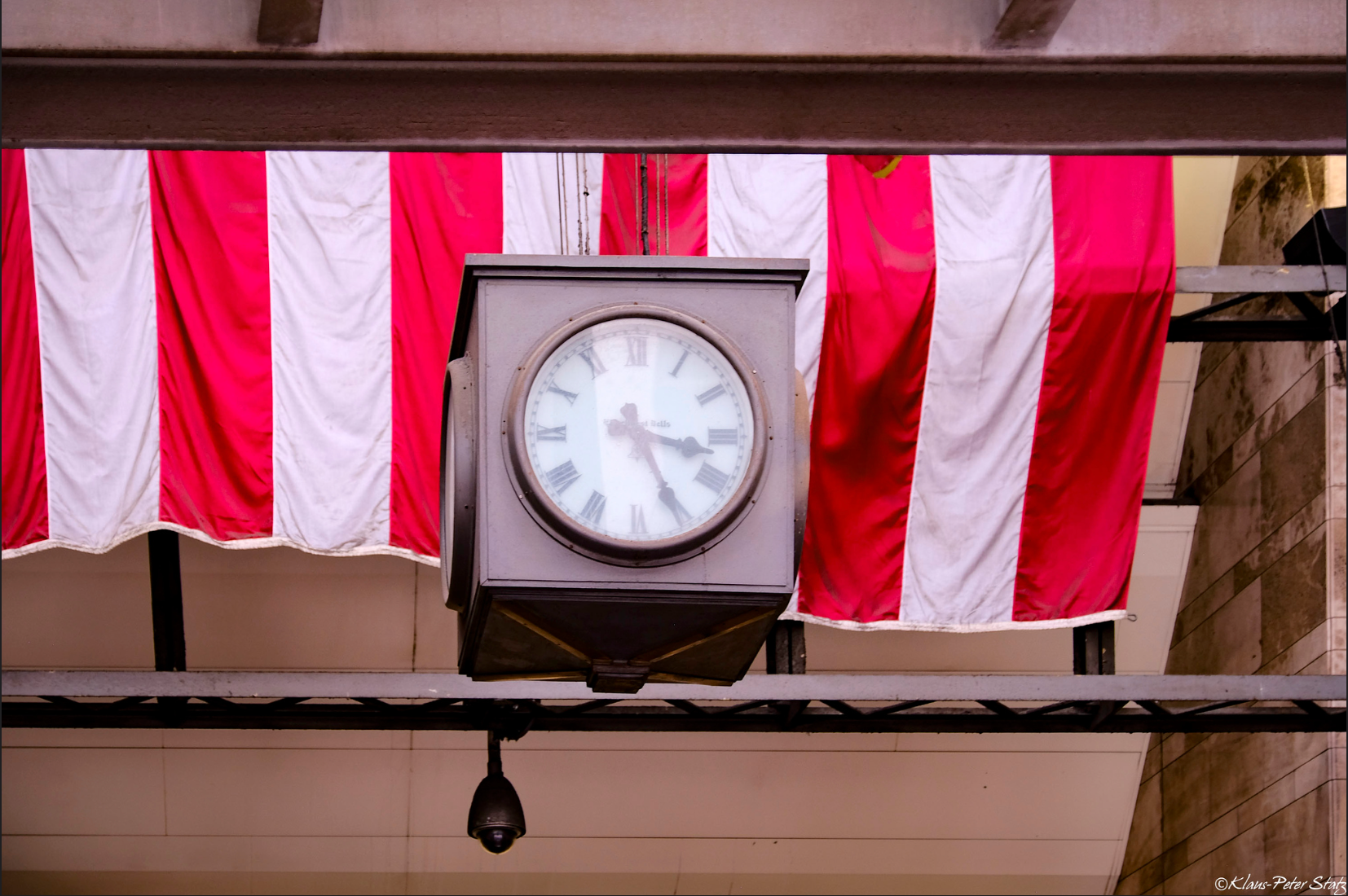
Hanging above the escalators at the 34th Street entrance to the Long Island Railroad near 7th Ave you can spot a vintage clock from the original Penn Station. There isn't much information about the four-sided clock and its original position in the station, but it is an often overlooked reminder of the station's past. On our tour through Moynihan Train Hall, you can see a new modern interpration of old Penn's vintage clocks now hanging at the center of the glass-ceilinged concourse.
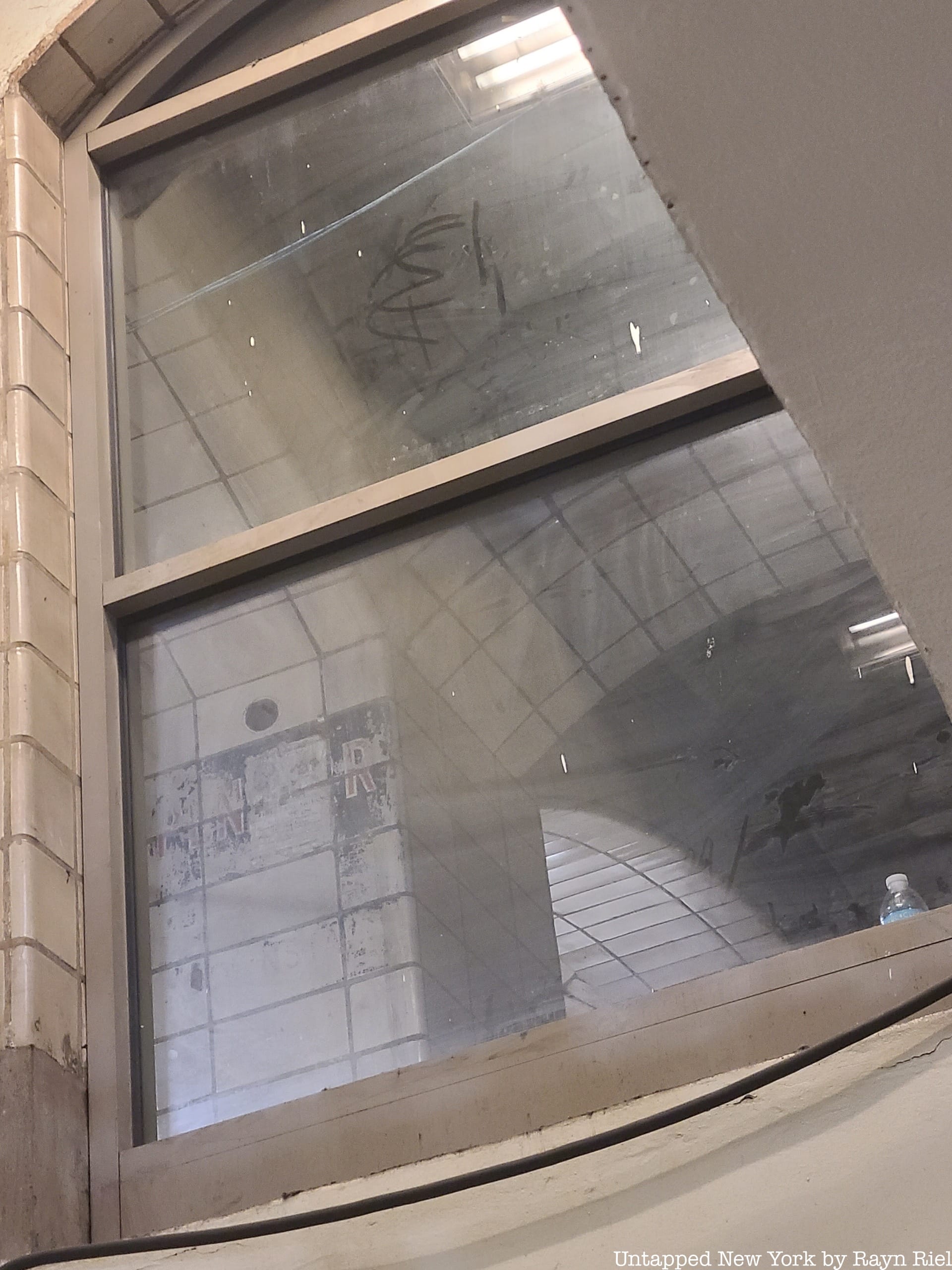
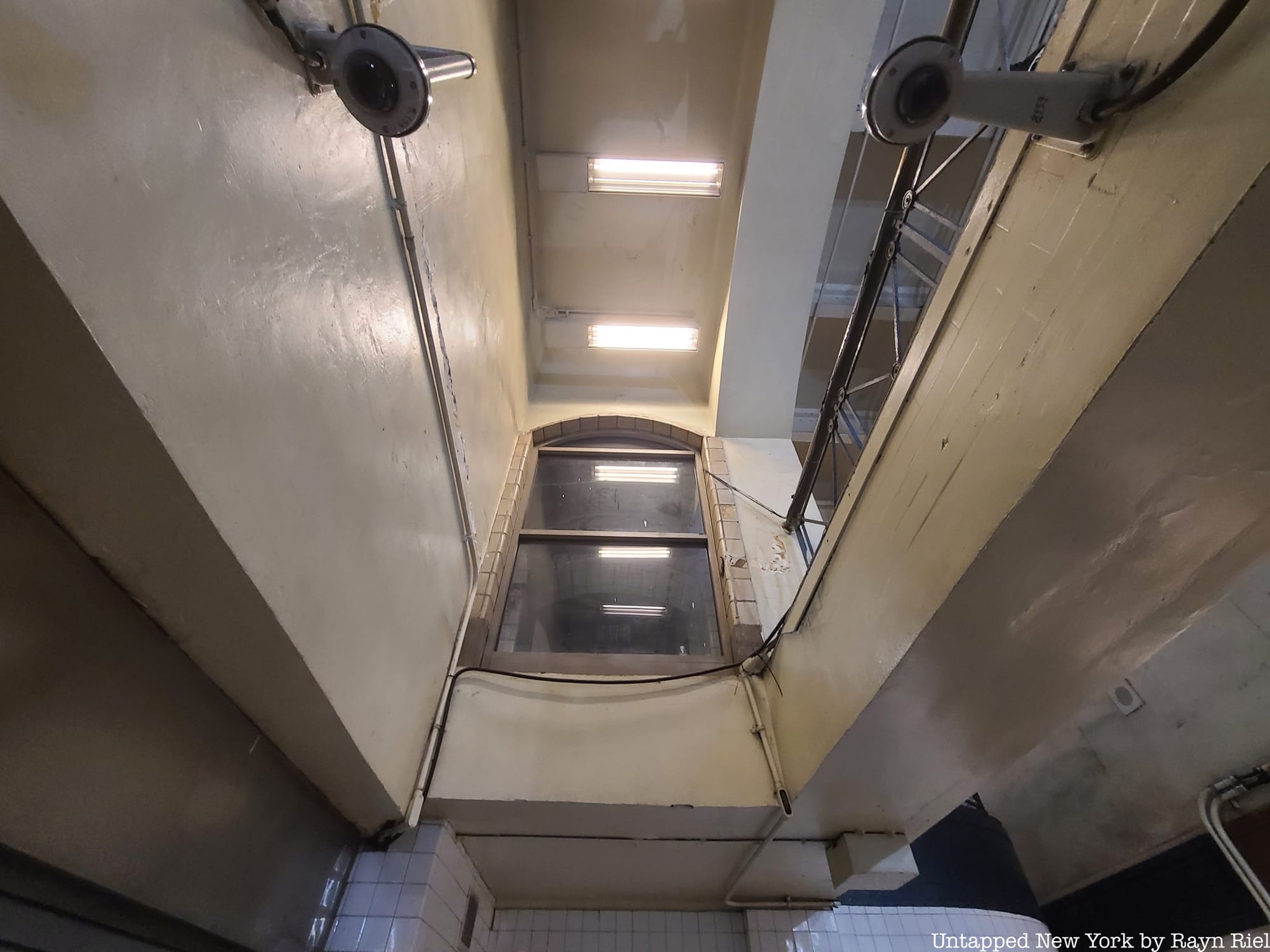
In 2019, construction on the Long Island Railroad concourse revealed a formerly hidden passageway which once led from the LIRR to the Interborough Rapid Transit Subway (IRT - the 1,2, and 3 trains as they are known today). This tiled walkway has been blocked off since the 1980s, but a window into the space was temporarily revealed through construction boards. Peeking through the windows, we could spot Guastavino tiled ceiling vaults.
While that window we spotted in 2019 (seen here) has since been blocked by a new door and cement, you can still catch a glimpse of the off-limits space it revealed if you crane your neck and peer up from the bottom of the staircase to the 1,2, 3 subway. Through a window, you can barely make out a tiled arch and a fading painted "Penn R.R." sign. This space was dark for as long as we can remember but it seems that someone has turned a light on at some point in 2024.
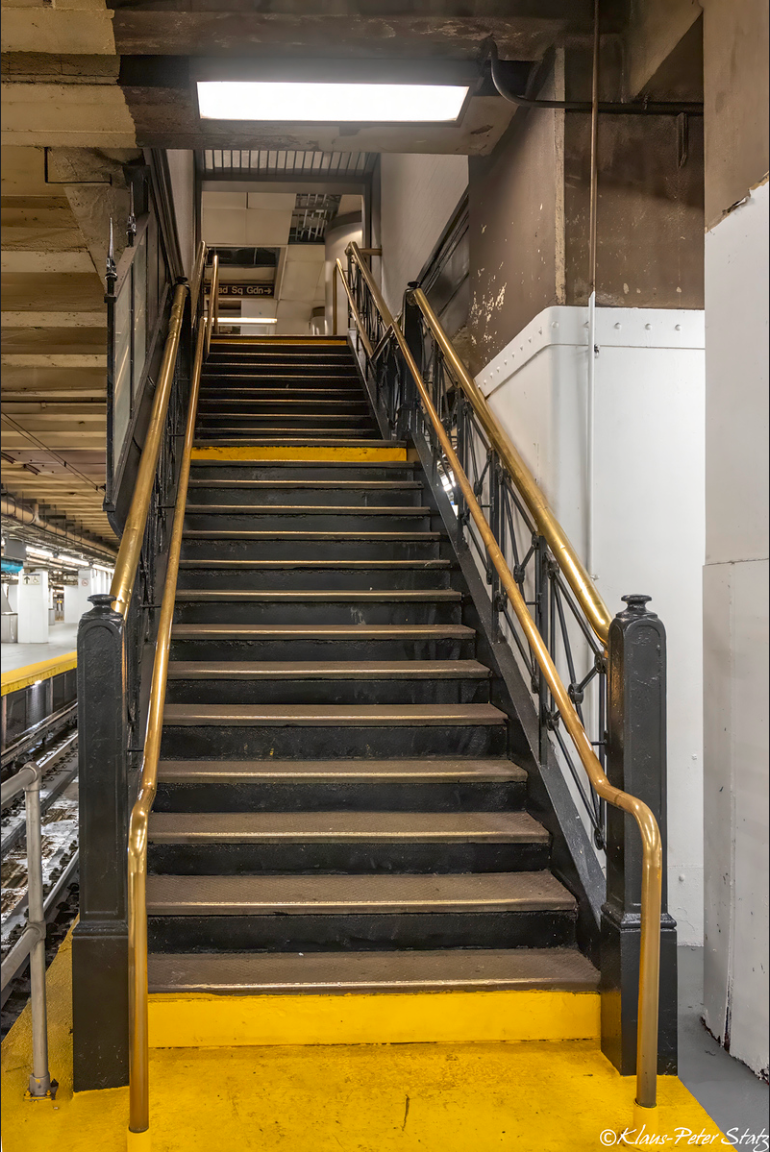
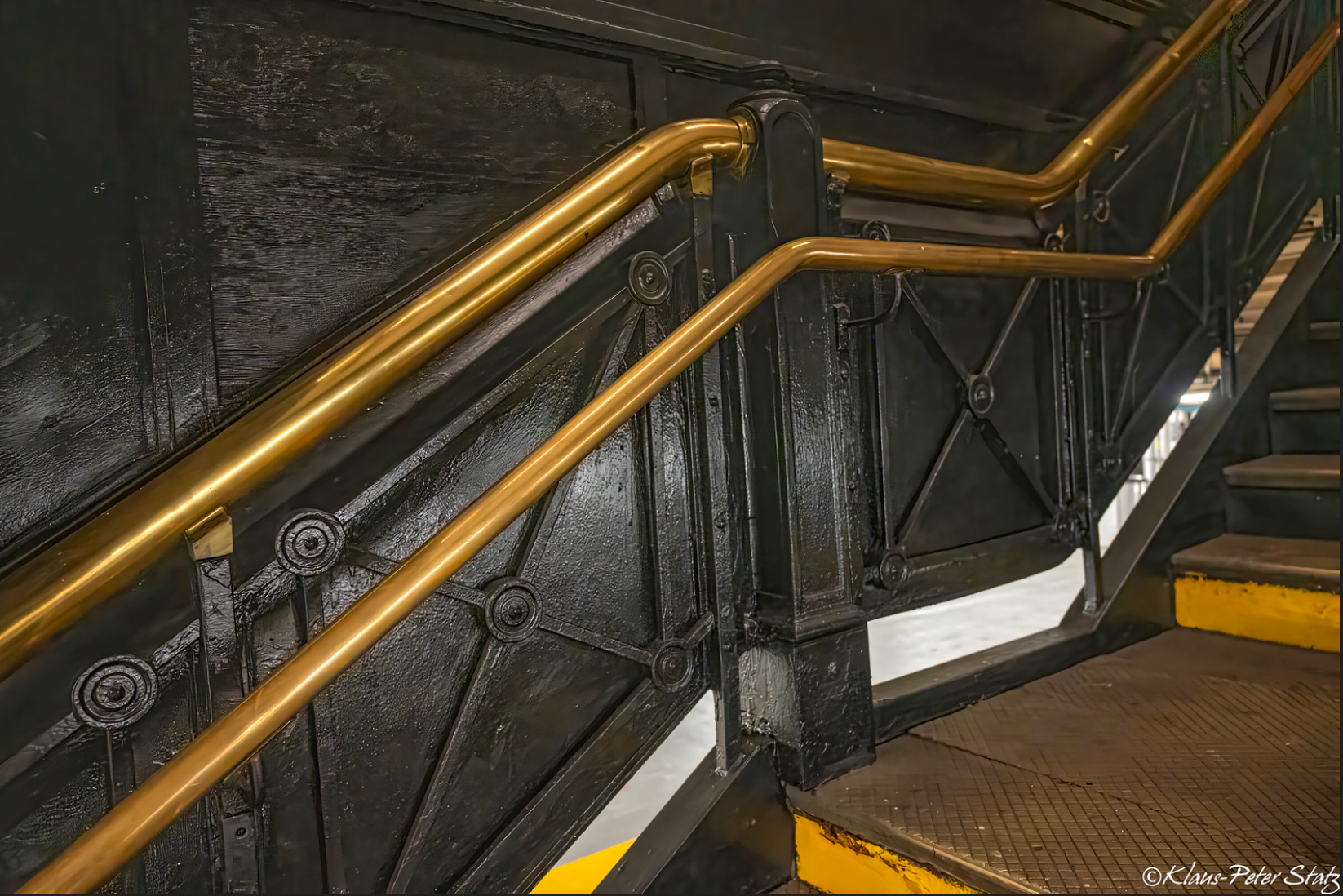
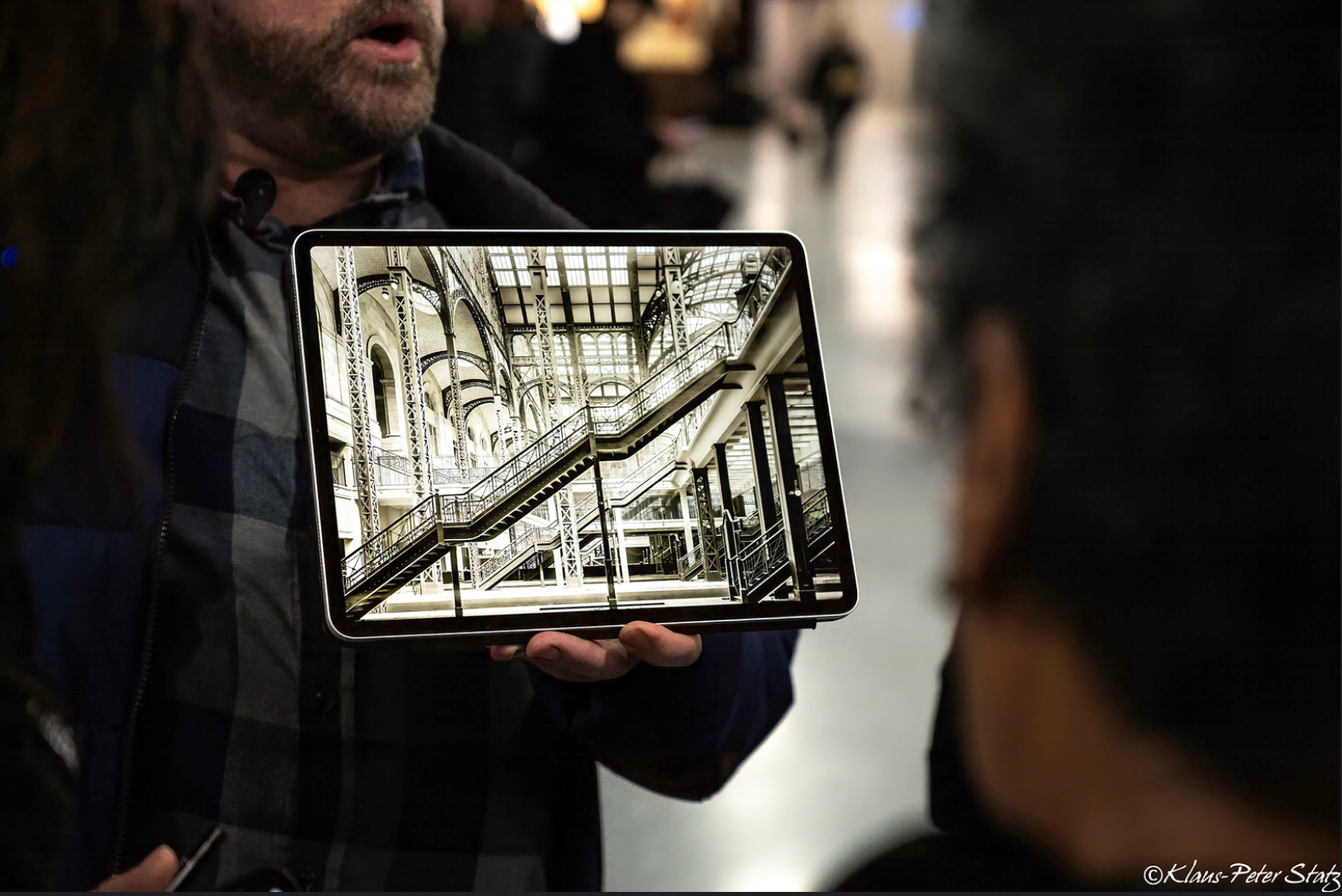
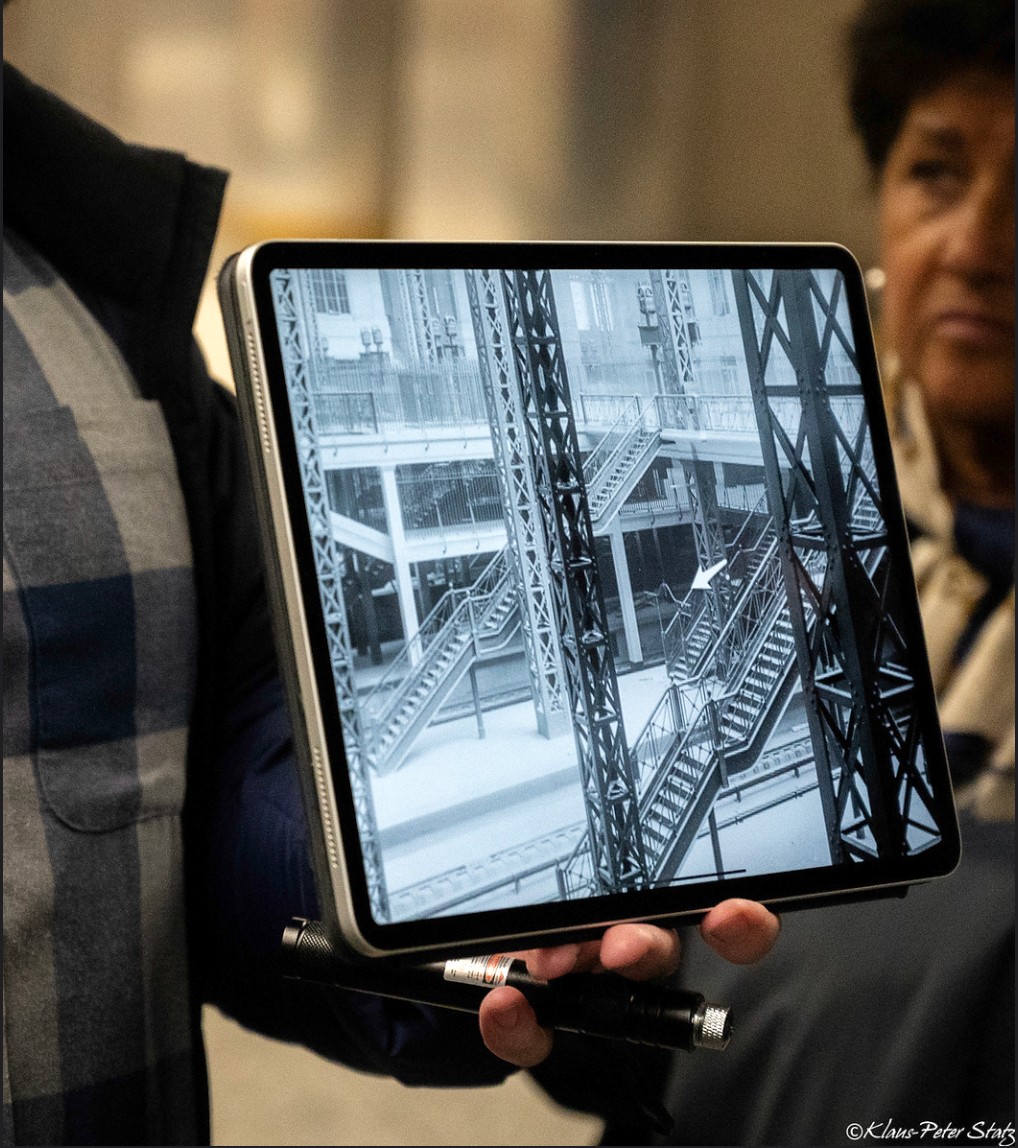
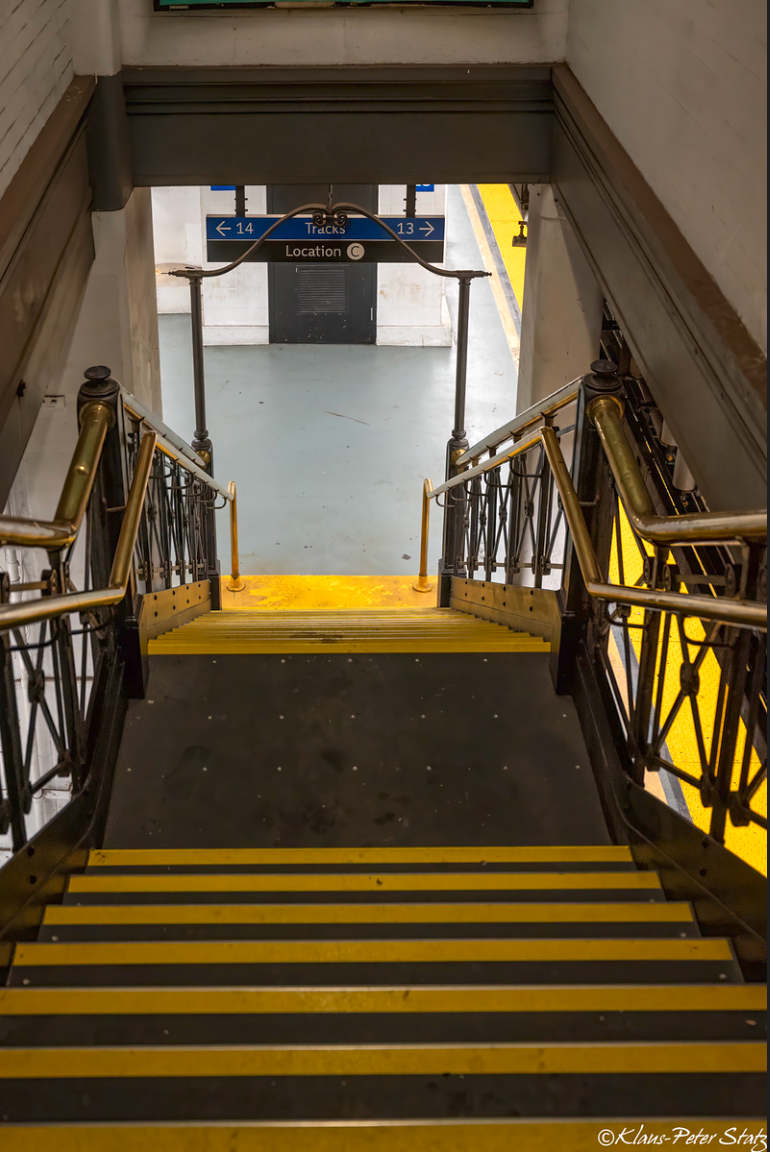
There are multiple brass and wrought iron staircase railings from the original Pennsylvania Station building throughout the current station. The last to retain its fancy little spiked frame detail can be found on the central concourse level staircase leading down to Track 17. You can also spot fragments of original stairs at Tracks 18, 19, and 20. You can see in the photos above that they are identified by the signature "X" pattern visible in photos of the original station.
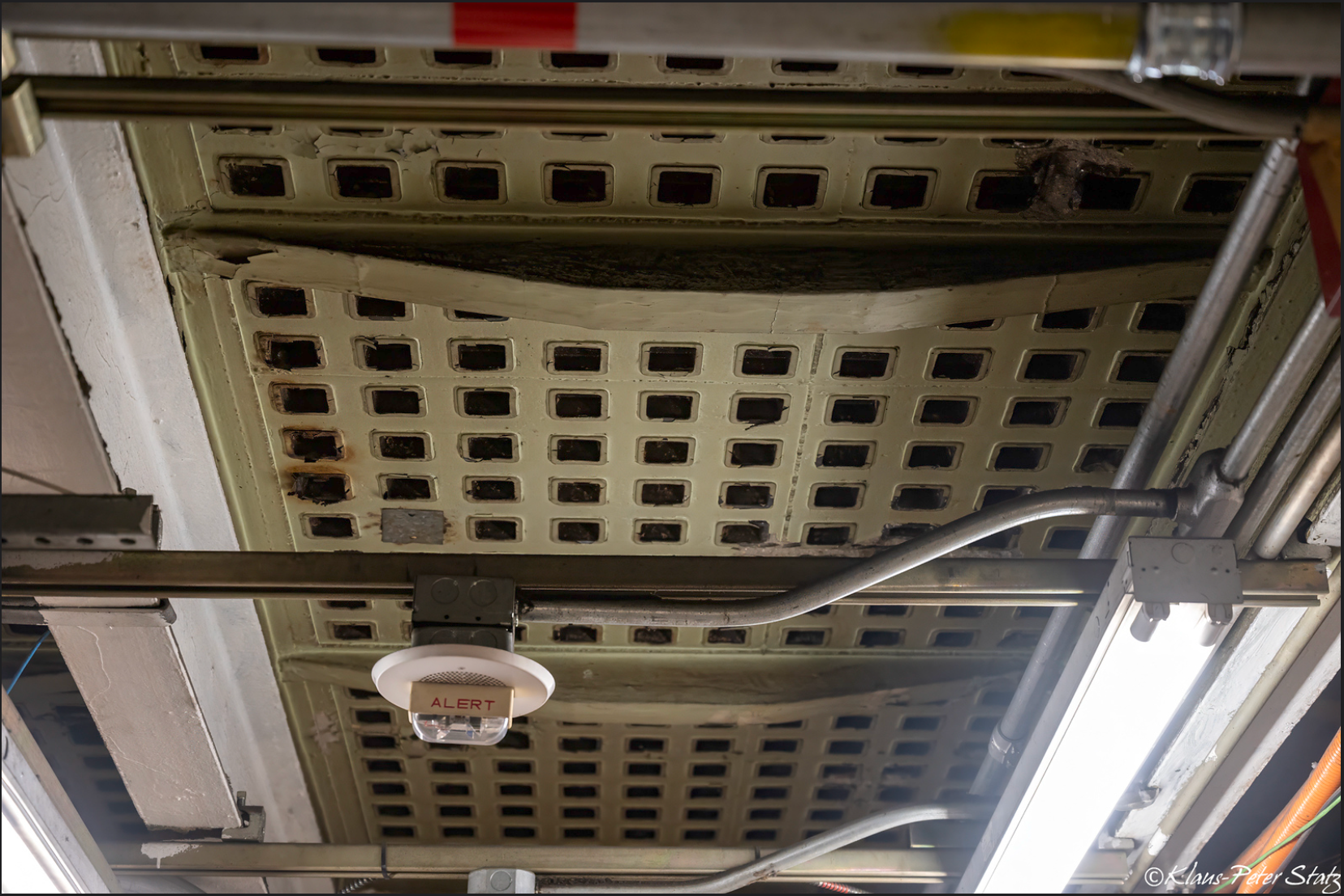
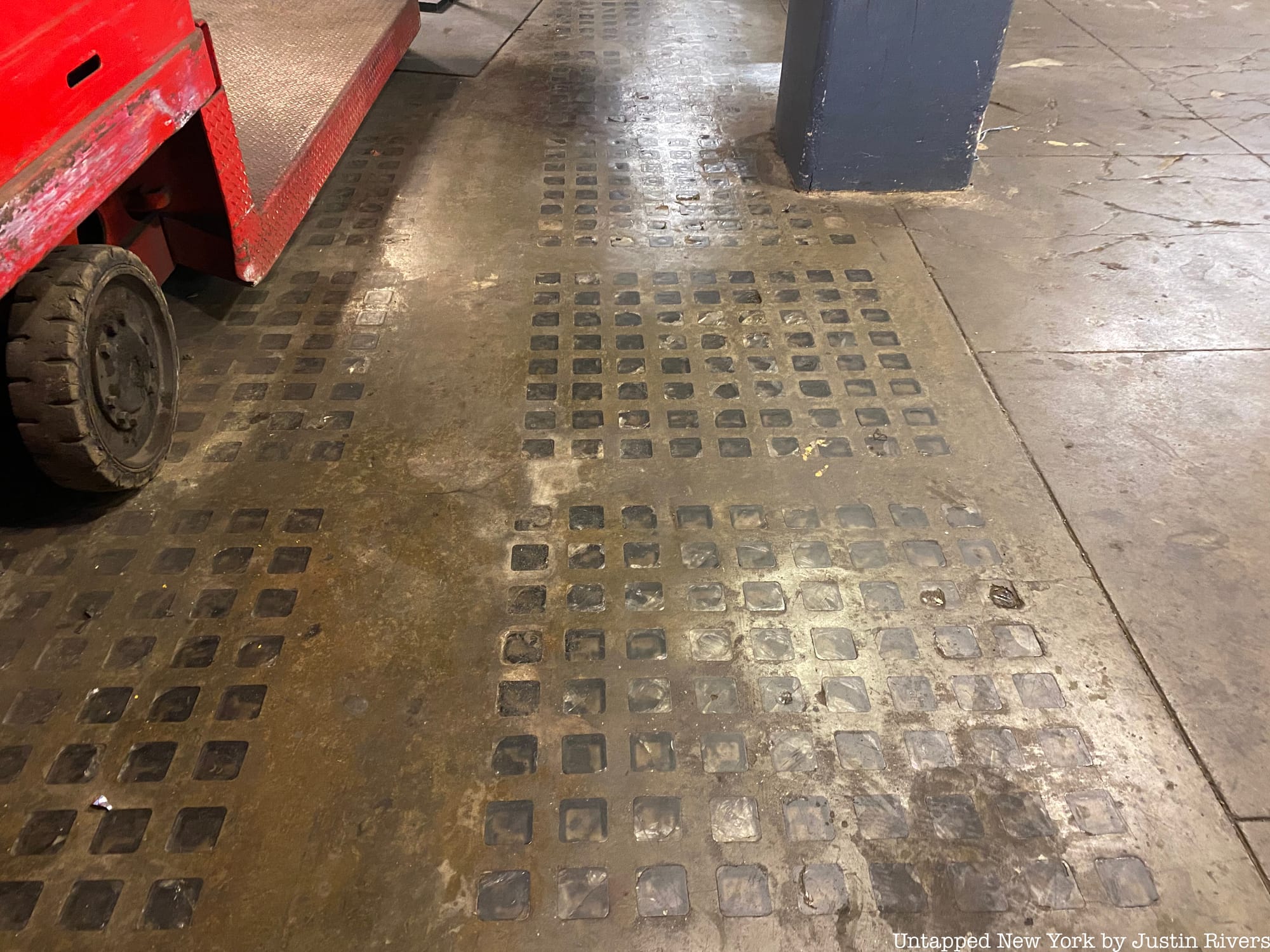
Glass bricks as seen from below (left) and above (right)
In McKim, Mead, and White's original light-filled station, glass bricks allowed natural light to reach down to lower levels, an another architectural detail visible on vintage photographs. Though they no longer serve this purpose, the flooring remains visible in many locations throughout the station, because the floors were not ripped up for the renovation but simply built around. Look up if you find yourself waiting for a train on any of the tracks from 15 to 21 and you might spot some glass bricks.
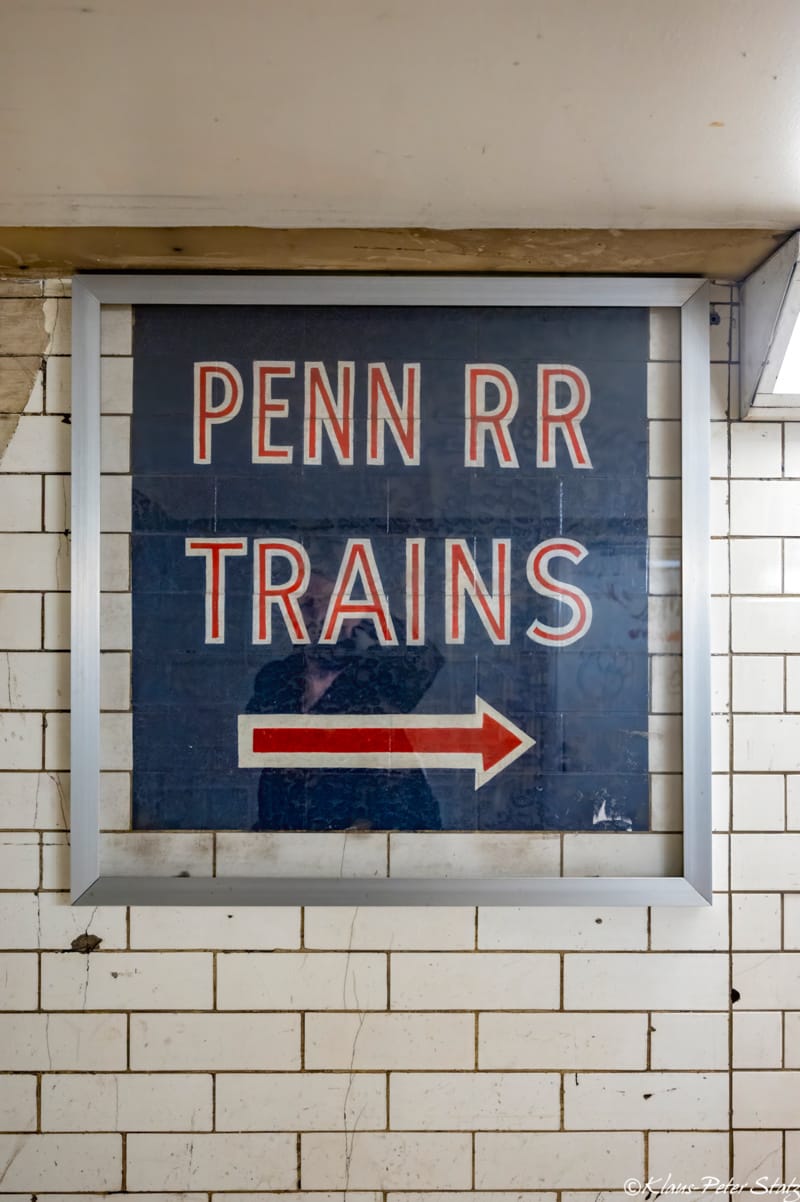
This piece of old Penn Station was almost lost, but thankfully it was preserved in 2021. The blue painted sign reads "Penn RR Trains" in red font above a red arrow. Untapped New York's Chief Experience Officer Justin Rivers, who leads our Secrets of Penn and Moynihan tours, believes the sign was originally an Interborough Rapid Transit Sign, most likely from the 1920s or 1930s. Over the years the sign has been partially obscured by a light box, covered up with plastic and tape, and now finally protected by a glass frame. You can see this remnant at the end of the Hilton Passageway, right before the turnstiles to the 1,2, 3 subways. Learn more about the sign's journey here!
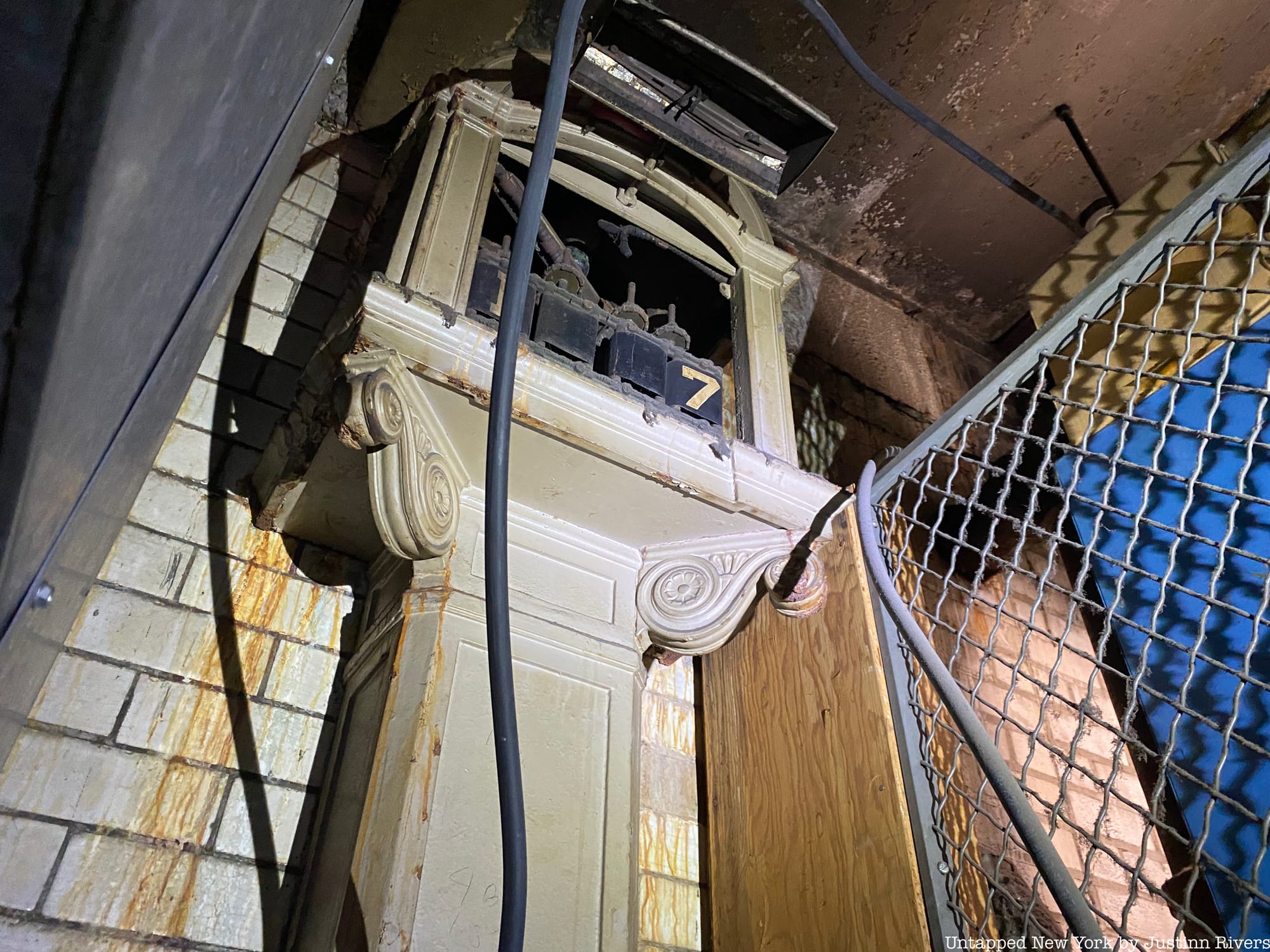
This unique remnant is in an area off-limits to the public, but we still had to share! The ornate column is a track indicator which used to show what trains were leaving from Track 1 and the departure time. An LIRR conductor gave Untapped New York access to Amtrak area where this remnant is located while we were exploring the station with filmmaker Claire Read for her documentary, Penn F—ing Station.
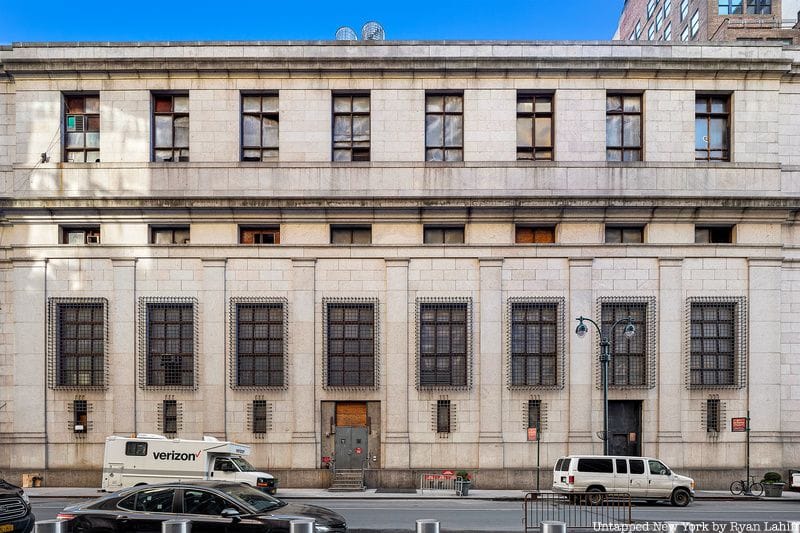
The above building, located on 31st Street, is the original coal-fired power plant of the station, built as a mirror image using the same Tennessee granite as the lost Stanford White masterpiece. This is the closest we’ll get to sensing the scale and materials of the original station, and it is certainly the largest remnant of Penn Station that still exists. Check out photos of the abandoned spaces inside here!
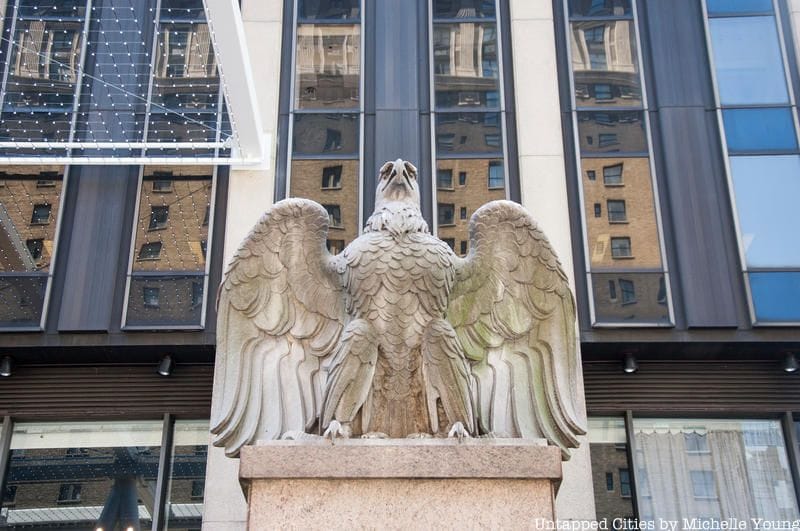
For a long time, two of the original 22 stone eagles that once stood on the building's cornice remained on-site. They were located outside at 7th and 33rd Street and 7th Avenue near 31st Street. In September 2019, the eagles were removed by the real estate company Vornado but now, at least one has returned home to the Penn District. Check out its story below:
We tracked down where the rest of the eagles have migrated to, all across the country, in this article.

Discover hidden remnants of old Penn Station and explore a new train hall inside a historic Post Office building!
Next, see the Penn remants that made it all the way to Kansas City and find out what parts of the original station are hiding in the cyrpt of an NYC cathedral!
Subscribe to our newsletter